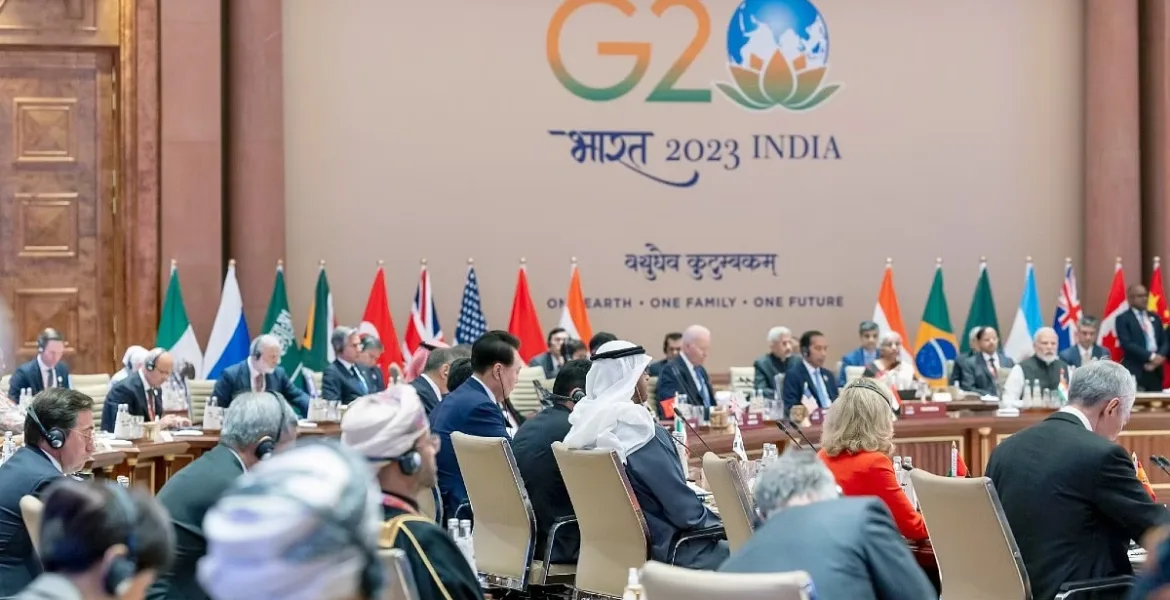The G20 New Delhi Leaders’ Declaration, adopted unanimously by G20 member states Saturday, is a call for action on the prevailing global environmental crisis. It commits to fighting climate change, reducing dependence on fossil fuels, building an ocean-based economy and ensuring climate action that is gender-inclusive.
While reaffirming the goals set under the Paris Agreement, the declaration calls for strong, sustainable, balanced, and inclusive growth and the pursuit of development models that “leave no one behind”.
It also commits to facilitating financing for low-income countries for their energy transition needs. This comes as a big win for countries like India who have been pushing for richer countries to take more responsibility for their role in the global climate crisis.
“Just energy transitions can improve jobs and livelihoods, and strengthen economic resilience. We affirm that no country should have to choose. We will pursue development models that implement sustainable, inclusive and just transitions globally, while leaving no one behind,” reads the G20 New Delhi Leaders’ Declaration.
Arunabha Ghosh, CEO of Delhi-based think tank Council on Energy, Environment and Water (CEEW), said India’s G20 presidency securing a consensus on the declaration on the first day of the summit amounted to a “historic moment”.
“A critical component of that is the ‘Green Development Pact for a Sustainable Future’, and I want to congratulate India’s presidency and also the G20 for coming together for this,” Ghosh told ThePrint. He added that equally important is the declaration’s focus on a clean sustainable, just, affordable, and inclusive energy transition.
“It is trying to bring the energy transition closer to people and the very economies and geographies whe.re large infrastructure will be built for development but which also needs to be driven by clean energy infrastructure,” he said.
Ghosh underlined that India’s G20 presidency has been continuously raising the issue of funds to aid the energy transition in the Global South. “This highlighting of the trillions of dollars needed — both for clean energy investment and overall focus on SDGs — embeds the clean energy and climate action components into the broader SDG agenda,” he said.
According to him, another key component of the declaration is its emphasis on ocean-based ‘Blue Economy’.
“This is to not only acknowledge the role our oceans play in regulating the climate system but also to understand how sustainable use of our ocean-based resources has to be done well in advance of us damaging this critical resource and then trying to clean it up,” he told ThePrint

